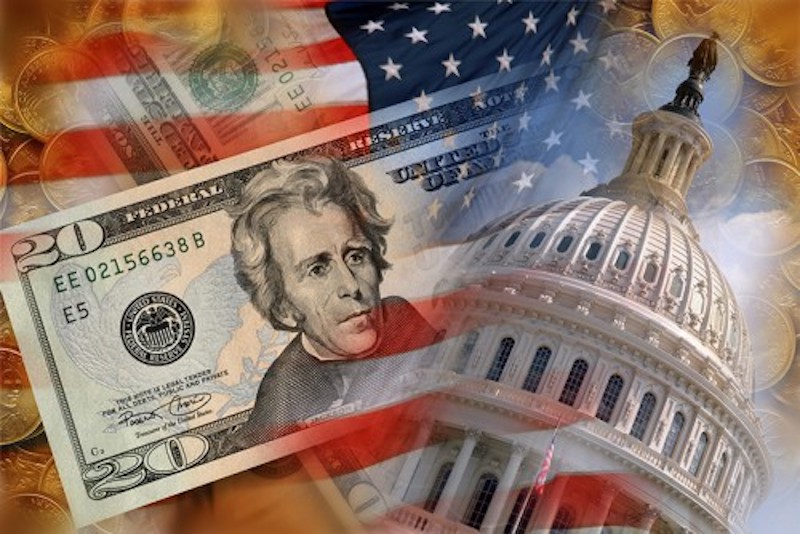Is the flat tax a good idea?
September, 15 2015 by Eric Linden
It is campaign season again! Man… it feels like Obama was just elected. Time sure does fly when you are gridlocked in D.C. There has been much campaigning on the promise of work to implement a flat tax system in the United States. But would this be a viable and better alternative to the current tax system?
It seems to be universally agreed upon that the current system is not working. The flat tax has been discussed for years and it is not new. Of course, with “The Donald” (Presidential Candidate Donald Trump) in the mix, more and more people are tuning into politics and this particular tax discussion. He is currently pushing for “simplifying” the tax code and will soon be releasing his plan, according to reports.
In essence, the flat tax is a system of taxation where one tax rate is applied to some types of income with no deductions. Of course, there are many variations, but this is the crux of the idea. Most politicians will have their own perceptions of what a flat tax should look like and you will need to listen closely at the nuances of their plans. Is the flat tax a good idea? We will let you form your own opinion.
Trump was recently quoted saying he would like to put H&R Block out of business. This is just a Trump way of saying, “Let’s make the tax code a bit more simple, shall we?” Trump says simplifying tax code would be one of his domestic priorities as president. As he says, “You can say fair tax, you can say flat tax, you can say 100 different taxes, or you can say simplification.”
Let’s discuss the pros and cons of a flat tax, while keeping in mind that what one person considers a “Pro” might be a “Con” for another person. By no means is this an exhaustive list - and to understand it fully, you will definitely need to do some homework in this area, as it can get very complex and confusing.
Some Pros:
SIMPLICITY – One tax rate makes it much easier for the IRS to compute payments, and it might be a dream for many taxpayers. (Talk about eliminating those dreaded tax months!) This is, by far, the most important and coveted tenet of the flat tax.
ELMINATES DOUBLE TAXATION – It removes the part of the tax code that is “biased against the formation of capital.” i.e., the death tax, capital gains tax, savings and dividend, etc. Again, this does go back to that word: SIMPLE.
EMPLOYS TERRITORIAL TAXATION – The government only taxes income that is generated within its borders.
Some Cons:
PENALIZES LOWER INCOME EARNERS – Poorer taxpayers would have less money left over after paying taxes, as they are required to purchase the same things higher income folks are.
GOODBYE IRS –The abolition of the IRS as we currently know it could be a reality if a flat tax was implemented, and some government employees could lose their jobs. But it is unlikely the agency would go away completely. As long as there is any kind of tax system, there will need to be an agency to manage the collection taxes for the government, no matter how much people dislike the idea of a tax collector.
BENEFITS HIGH INCOME EARNERS – Some feel the flat tax can disproportionally benefit the rich.
It would be also important to mention the other side of the coin: The Regressive Tax:
REGRESSIVE TAX – This is a tax that impacts people with low income more negatively (they generally pay more proportionally) than people with high incomes. A drawback of this tax, obviously, is it is not a good deal for the lower income folks. The Social Security tax is considered regressive. Here's an example:
Let’s say a worker pays 6% in social security tax on their wages up to a maximum wage of $98,000:
A worker who makes $30,000 a year pays $1,800 (30,000 * .060) in tax or 6.0% of wages
A worker who makes $500,000 a year pays $5,880 (98,000 * .060) in tax or 1.1% of wages
The United States currently has the opposite of the regressive tax system where the more dough you make, the more taxes you pay. Well, unless you find some nice write-offs and loopholes. Warren Buffet made headlines a few years ago saying he paid less taxes than his secretary. Huh? Regressive? We will not get into that here.
As we move through the long 2016 election cycle, you will most likely hear the term “flat tax” uttered often. It is up to you to decide what you think it the right way for America to go. Taxes are a hot topic in all presidential elections, and it is really up to us to educate ourselves as much as possible.




